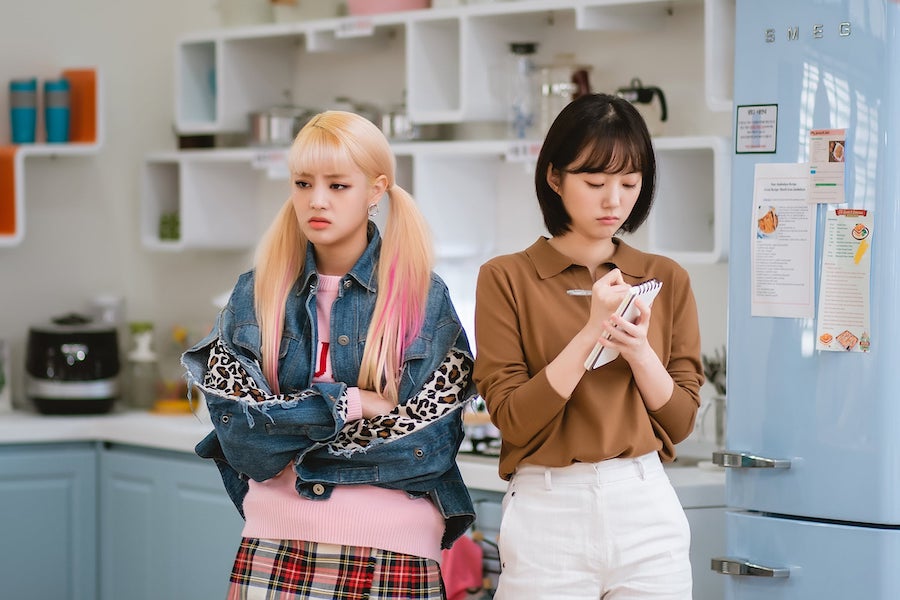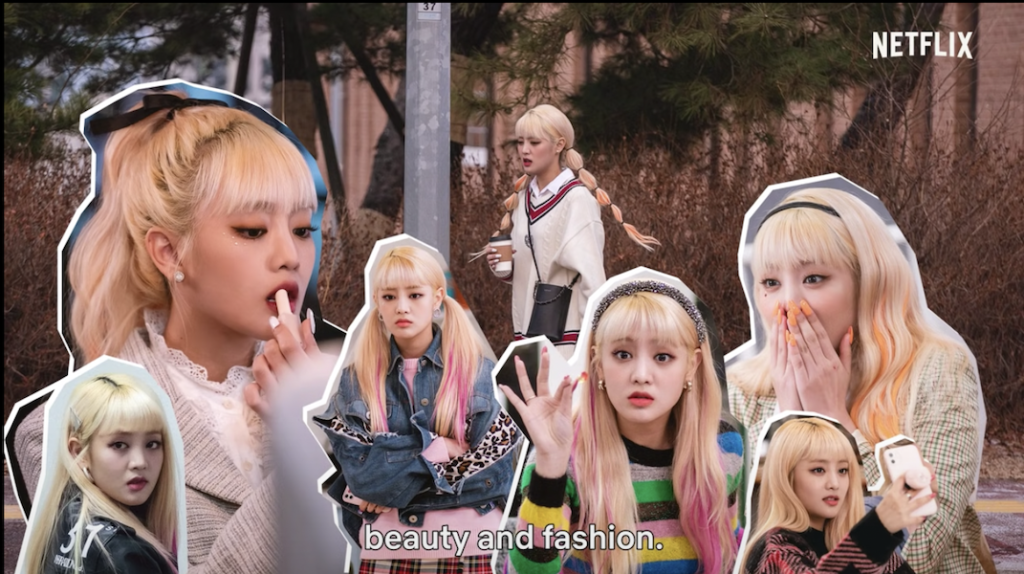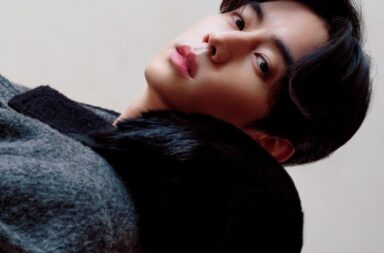
At a quick glance, So Not Worth It definitely attracts attention with its international and culturally diverse cast who speak Korean fluently. As a Netflix sitcom that is noticeably geared towards foreign viewers, unfortunately, that is all it has to offer. Despite brief cameos from big names like Haha and Kang Ho-dong and produced by the creators of Unstoppable High Kick and Nonstop, the show fails to remain engaging.
At the crux of this sitcom lies Se-wan (Park Se-wan), a student resident assistant living in her university’s international dormitory. Along with her are Jamie (Shin Hyun-seung), an initially introverted Korean American student who later becomes her boyfriend, Hyun-min (Han Hyun-min), Sam (Choi Young-jae), Minnie (Minnie), Carson (Carson Allen), Terris (Terris Brown) and Hans (Joakim Sorensen).
Although the sitcom seeks to present the everyday life of international students living in Seoul through comedy, its efforts are mostly in vain. On first look, So Not Worth It is similar to the likes of The Big Bang Theory and the Welcome to Waikiki series, sharing the commonality of young adults in a communal living space. Yet many times, it failed to draw laughter, even with the use of a laugh track. In fact, it has been used to the point of misuse, annoyingly heard every three to five lines. While it is very sitcom-like to do so, most of the comedic attempts in So Not Worth It was unfunny. It banks on small pockets of supposed humour to evoke laughter that is forced by the accompanying laugh track.

On one hand, the laugh track could be the show’s attempts to shoehorn elements of American sitcoms into a Korean one. On the other hand, it diminishes the actual humour, distracts the viewer and breaks the flow. In one instance, when Carson confessed to not having washed her hair in days, the cleaning lady walks past and comments, “Why does her hair smell like feet?”. While the unexpected remark was funny, adding a laugh track right after quickly reduces its comedic potential. Oftentimes, the laugh track was plain unnecessary, as if its purpose is to mask the show’s inability to produce something worthy of actual laughter.
Despite its absence of punchlines, every so often, it attempts to be funny through its lazy jokes and lowbrow humour. Ju-ri, Terris’ ex-girlfriend, giving her dog a french name, Sanouvellebiche (시벨옴), one that sounds like a curse word in Korean. Hyun-min not knowing that he could defer his military enlistment until the barber shaved away a strip of his hair. And again, Hyun-min dropping his winning lottery ticket as a closing scene. This is not forgetting its meta-jokes when whipping out food, with several characters asking the other party if it is a product placement. While the self-referential humour was interesting, to say the least, it was most definitely random and out of place.
Moreover, the show has a tendency to accidentally shoehorn its characters into stereotypes. In turn, they turn into caricatures instead of independent characters. The most glaring one concerns Minnie’s borderline obsession with Korean dramas and Korean men. While it is true that like many young Thais, Minnie is influenced by the Korean wave, portraying her as a crazy K-drama fanatic who dreams of meeting Hyun-bin, and chases and hooks up with Korean men is worrying. Right off the bat, Minnie is seen watching Crash Landing on You. This progresses to her getting baited by her friend to join her at the club by claiming that Hyun-bin is there. When she returns to the dormitory the next morning, she appears with nothing but an oversized sweater and casually confesses, “I lost my pants while partying”, meaning, she hooked up at the club.

Later, when Carson visits her boyfriend, Sergeant Kim, a prison correction officer, Se-wan and Minnie decide to tag along for a blind date with his colleagues. Minnie agreed only because she wrongly believed that Sergeant Kim works for the army, similar to the likes of Song Joong-ki in Descendants of the Sun. Unfortunately, he works at a prison and none of Sergeant Kim’s colleagues are physically attractive enough for Minnie. She then laments, “This is different from the drama”. Soon, a handsome one walks past and catches her eye. Lo and behold, he is called Private Yoo Si-jin, just like Song Joong-ki’s character. She latches onto him despite his attempts at defusing her obsessive behaviour. Against the stares from others and Yoo Si-jin’s clear discomfort, Minnie’s tunnel vision of on-screen Korean men and projecting it onto others rubs the wrong way. Ultimately, this is it. Minnie’s obsession with K-dramas is exaggerated to unhealthy levels, leaving her with barely any depth to her character.
One major gripe was the portrayal of women in So Not Worth It. Women are often illustrated as cunning, manipulative and easily love-struck. There is Minnie who is only interested in handsome Korean men and has hinted at sleeping around with many. There is also Hyun-min’s sister, Hyun-a, toying with her brother’s friends by acting coy to allow her to reside at their dormitory despite the rules dictating otherwise. At other times, Hyun-min’s fling love bombs him into liking her so he can do her housework while she is at work. Even Se-wan, the female protagonist, is not spared from this. Barely ten minutes into the first episode and Se-wan tricks Jamie into paying for her phone by lying to him that he broke it when he tripped over her dangling phone cable. The only independent female character is Carson who is older and unforgiving towards anyone who steps over her. When she found out that someone misplaced her umbrella, she threatens to “crush every bone in his body into 20,000 pieces”. In turn, the other male characters are careful not to offend her as according to them, “Once she loses it, she does not hold back”.
Another thing that was done poorly is its pacing, one that peaks as fast as it dips. Something normal can happen at one second and the next, it quickly turns funny, touching or romantic with little to no build-up. And it goes back to normal again immediately after. While the pace picks up only halfway through, the show also had many unnecessary and underdeveloped moments.
In particular, the drug smuggling subplot further proves this point. When it was revealed that Jamie is the adopted son of Barbara Houston, the professor of the dormitory reported in secrecy to his higher-up that all is well on his end. He simply stated that a student was reported for smuggling drugs but no one from the outside knew because Jamie’s family revelation was an excellent cover-up. At other times, this drug subplot was only mentioned in the background, on the news, that none of the characters was paying attention to. While this could have been better leveraged for a plot twist, the fact that it did not renders this subplot impractical, one that does not add value to the main narrative. The same is true for Minnie and Sam’s relationship where their confession and how they got together was cut short. Both of which were unfortunate as they were underdeveloped plots that had potential.
The most striking problem with pacing concerns Hyun-min’s character. Although he is one of three characters who have their origin story told, his inner monologue turned rap was clumsily done. Not because of Hyun-min’s rap skills, but because it was awkwardly placed as the only musical number throughout. There is no decent explanation as to why only Hyun-min gets a musical number. It is either that it was entirely experimental or that it is an attempt to showcase or exoticize both his Nigerian and Korean roots. While this is in relation to pacing, it also concerns the aforementioned caricatures and stereotypes. There are many things to point out in this segment — buchaechum (fan dance), Taekwondo, pungmul (rural folk percussion), the traditional Korean background instrumental and of course, rap. While there are many elements that encapsulate the essence of Korea, the only other, rap, is often mentioned with regards to Black culture. It is almost as if rap is the only representation of the Black popular culture that the creators knew. Despite producing characters like Minnie and Sam who auditioned to be K-pop stars, one cannot help but side-eye the creators as to why Hyun-min was spotlighted for this segment instead.
The sitcom attempts to do many things at once and for that, it somewhat develops into a self-serving, self-correcting program, especially so during its feature of the Middle Eastern character, Eoksour. Minnie first meets him when he almost knocks her down with his car while she was crossing the road. He steps out of his expensive sports car while donning a thawb and rushes to help her up like a knight in shining armour. He even offers to pay for Minnie’s new clothes as she spilt coffee over herself from the shock. Afterwards, he sends Minnie back to the dormitory and she is seen carrying several paper bags of what looks to be from luxury brands. He later invites her to an expensive restaurant and her friends decide to tag along to rip him off for this meal. Judging from his name, they believed that he was a “son of an oil tycoon”.
With the show’s focus on his wealth, Eoksour appears to be a stereotypical rich Middle Eastern. That is until his true character is revealed. His car and thawb? It was for a modelling job. The restaurant invitation? It is where he works part-time and the restaurant needed some publicity. While it seeks to shatter stereotypes and address this issue, the many convenient coincidences cancel out its intention by oversimplifying the problem. Having simply glossed over this, it ends up being superficial, as if the creators wanted a pat on the back for acknowledging this stereotype and breaking the mould themselves.

Although So Not Worth It has more misses than hits, at its best, it serves its purpose as a lighthearted youth drama sans the stressful parts of adulthood. One of its merits includes how aptly dressed the characters are. The attention to detail in their wardrobe perfectly reflects their personality. For the most part, Carson, a food lover, is seen with food stains on her shirt. Minnie, a K-drama fanatic, dresses in a K-pop-esque style. Hans, one who is familiar with fundamentally Korean ideas such as hyo (filial piety) and jesa (ancestral ritual) often dons a neat, modern style Hanbok. One of its stronger points, albeit being touch-and-go, also includes spotlighting an LGBTQA+ relationship.
So Not Worth It is mediocre at best. While it tries to be a sitcom that is culturally and racially inclusive, to some extent, it unknowingly ends up stereotyping its characters. Not to mention, it has a tendency to water down its characters, of which many had the potential to grow into compelling ones. With its awkward pacing and unexplainable ending with Hyun-min losing his winning lottery ticket, it makes me wonder, will season two be better?
(Love to Know, US Pungmul. Youtube[1]. Images via Netflix.)


